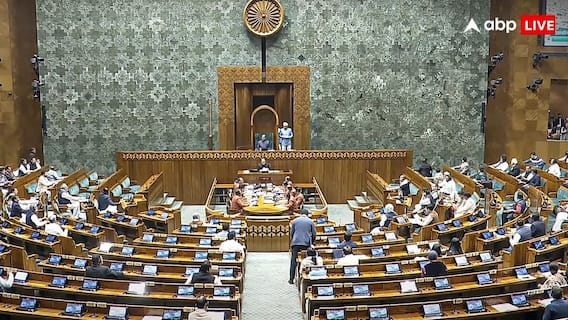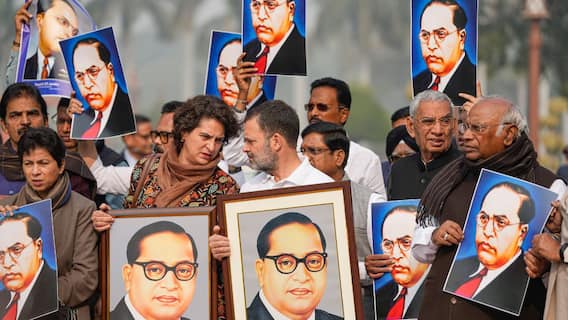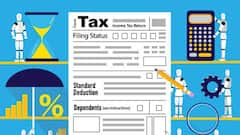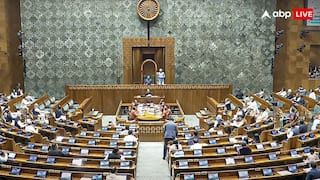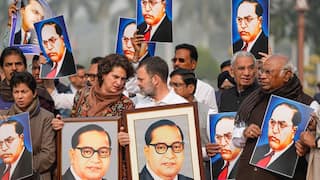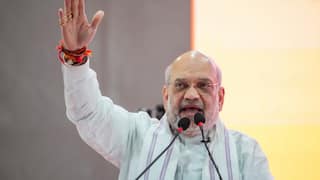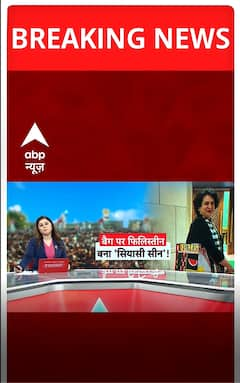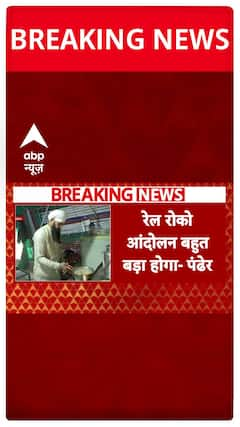How To Maximise Tax Savings For Healthcare Benefits: Here's A Guide To Sections 80D, 80DDB, 80DD, And 80U
Tax Savings For Healthcare Benefits: Sections 80D, 80DDB, 80DD, and 80U of the I-T Act stand as pillars offering deductions for medical expenses and disabilities, alleviating the financial burden

Tax Savings For Healthcare Benefits: Finding relief for healthcare expenses can be a beacon of hope for many taxpayers amid the intricate web of tax laws in India. Sections 80D, 80DDB, 80DD, and 80U of the Income Tax (I-T) Act stand as pillars offering deductions for medical expenses and disabilities, potentially alleviating the financial burden on individuals and families. Understanding and leveraging these sections of the I-T Act can reduce your financial strain of healthcare expenses and disabilities, providing much-needed relief to taxpayers across the spectrum.
Let's check the nuances of these sections and how they can help taxpayers in saving a substantial amount on their taxable income.
Section 80D: Easing the Burden of Medical Expenses
Under Section 80D of the I-T Act, taxpayers are granted the opportunity to reduce their taxable income by claiming deductions on medical expenses. However, these deductions come with specific conditions:
The medical expenses should be for oneself, spouse, dependent parents, or dependent children. Notably, individuals aged 60 and above can claim medical expenses for any family member.
The individual for whom medical expenses are incurred should not be covered by any health insurance policy.
Meeting these conditions enables taxpayers to claim deductions of up to Rs 50,000 for medical expenses incurred during the financial year. It's crucial to transact payments through banking channels like credit/debit cards, net banking, or digital wallets, as cash payments are ineligible for deduction.
It's imperative to differentiate between medical expenditure and preventive health consultation or check-ups:
Medical expenditure covers treatment of ailments or diseases for self or dependent family members aged 60 and above.
Preventive health check-up expenses, regardless of age, must be paid in cash, with a maximum deduction capped at Rs 5,000.
ALSO READ | How To Pay Less Tax? A Guideline To Filing Claims Under Section 80C
Deductions under Various Sections: A Breakdown
Section 80D: Allows deductions for medical expenses incurred on self, spouse, children, parents, and dependent relatives. Maximum deduction is Rs 25,000, or Rs 50,000 for senior citizens.
Section 80DDB: Grants deductions of up to Rs 1 lakh for medical expenses incurred for the treatment of a dependent with severe disability.
Section 80DD: Provides deductions of Rs 100,000 for expenses on maintenance, training, and rehabilitation of a dependent with disability.
Section 80U: Allows deductions of Rs 1 lakh for medical expenses incurred for the taxpayer's own disability.
Who Can Claim Within Section 80DDB?
Deductions under Section 80DDB are applicable for medical treatment expenses specified in the section. The deduction amount depends on factors such as the age of the individual and can be claimed by the individual or their immediate dependent. For individuals under 60, the maximum deduction is Rs 40,000, while for those aged 60 and above, it's Rs 1 lakh. Notably, the deduction is applicable even if the individual is covered by another health insurance policy, but the claimed amount is reduced by any reimbursements.
Navigating Deductions in Sections 80DD and 80U
Sections 80DD and 80U cater to incurred medical expenses for which claims can be made under tax-saving deductions. The deductions can be claimed by the individual or immediate dependents, including spouse, parents, children, siblings, based on the level of disability:
For disabilities ranging from 40 per cent to less than 80 per cent, a deduction of Rs 75,000 is permitted.
For disabilities of 80 per cent or more, a deduction of Rs 1.25 lakh is allowed.
These deductions are fixed regardless of the actual expenses incurred.
Tax Saving Deduction for Disabled Individuals Under Sections 80DD and 80U
Expenses incurred on medical treatment, nursing, training, and rehabilitation of individuals with disabilities can be claimed for deductions. This deduction reduces the overall tax liability by being deducted from the total income of the taxpayer. Moreover, provisions for annuity payments or lump sum amounts ensure support for individuals with disabilities, even in the event of their demise. Individuals have the flexibility to designate a dependent, another individual, or a trust to receive payments on their behalf.
ALSO READ | Largest FPO In India, Vodafone Idea Raises Rs 5,400 Crore From Anchor Investors
Trending News
Top Headlines






